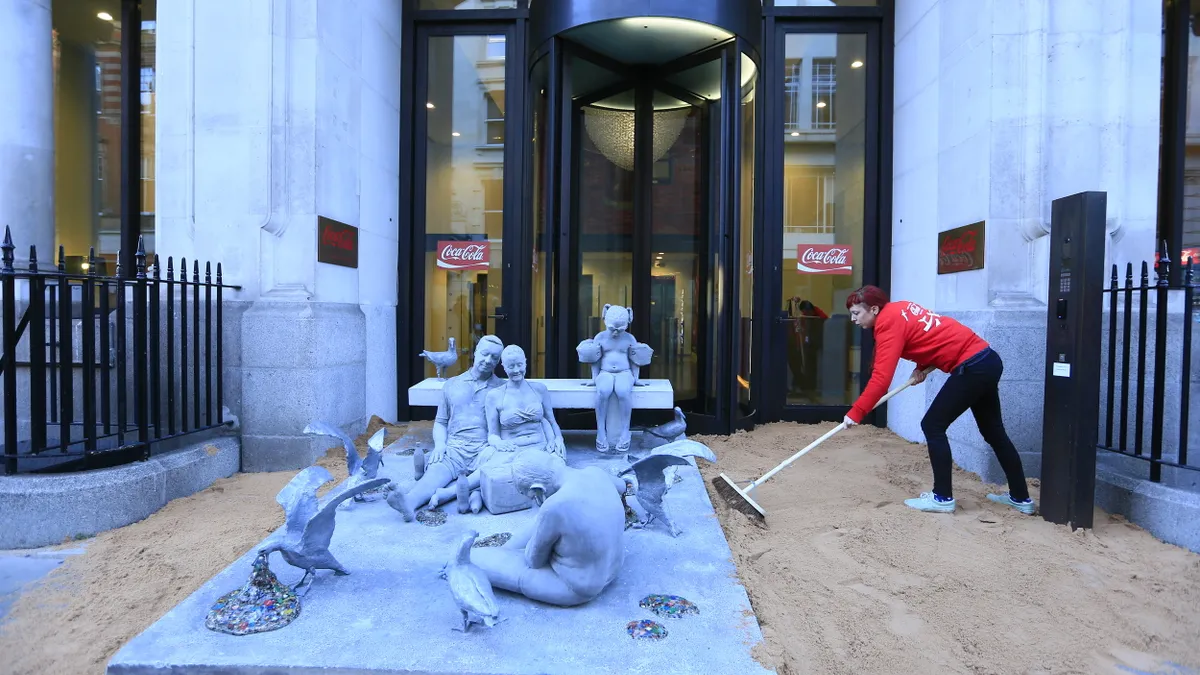Dive Brief:
- Greenpeace UK has released a new report calling out Coca-Cola for its role in plastic pollution and perceived lack of progress on making its products more recyclable, as reported by CNN. According to this report, an estimated 60% of the drink packaging produced by the company is single-use and they produce more than 100 billion plastic bottles per year.
- To draw attention to this campaign, Greenpeace released images dubbing the company "Choke" and installed a 2.5 ton sculpture in front of the the beverage maker's UK headquarters. The sculpture, "Plasticide," features a family playing at the beach while seagulls eat plastic and vomit it up around them.
- Coca-Cola released a statement to CNN saying that it was "disappointed" by Greenpeace UK's actions because they had been working together on a new sustainable packaging strategy due out this summer. The company said that in the U.K. it has reduced the amount of plastic in packaging by 15% since 2007 and currently uses 25% recycled plastic in all bottles.
Dive Insight:
Despite Coca-Cola's reported progress in the U.K., Greenpeace points to a lack of movement on a global level that the organization finds troubling. According to their report, the company fell far behind achieving a global goal of sourcing 25% of its plastic bottles from recycled or renewable sources by 2015 and is not on track to help recover and recycle 75% of all the beverage containers it produces by 2020. The report also details the company's opposition to deposit return systems in the U.K. and reusable bottles in countries such as Germany.
In addition to many other specific claims about the company's policies is an underlying accusation of hypocrisy for funding environmental causes rather than addressing the root concerns of this perceived problem. Coca-Cola is a key sponsor for environmental groups such as the Ocean Conservancy, Keep America Beautiful and a host of other smaller programs related to recycling. The company is also a sponsor of efforts to expand systems for collecting and processing recyclables, such as The Recycling Partnership and Closed Loop Fund.
This debate over producers' responsibility for how what happens to their products after purchase isn't unique to Coca-Cola, though plastic bottles have become a major focal point. One report in the U.K. estimated that about 44% of plastic bottles being used aren't recycled on a daily basis and bottle caps are common sights among other beach litter. With the plastic container market projected to grow 6% by 2020, and bottled water making up an increasing share of that business, this type of attention from advocacy groups is unlikely to abate any time soon.















